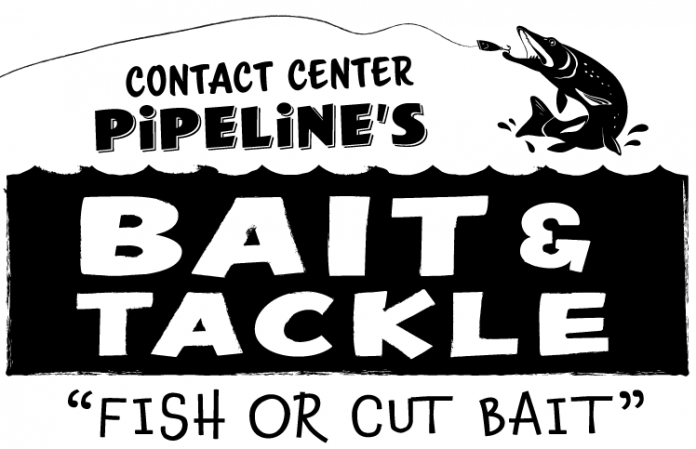
“Fish or cut bait” is of U.S. origin and, of course, derives from the sport of fishing. Cutting bait is a straightforward literal term that means chopping up bait to attract larger fish. The phrase began to take on more figurative meaning around the middle of the 19th century.
“Fish or cut bait” essentially refers to those doing nothing when out at sea on a fishing vessel… not fishing, not cutting bait, not contributing to the mission at hand. In management speak this really means, “Stop procrastinating and get to work!” And there is also a more colorful and familiar version: “&#!% or get off the pot.” (We’ll stick with the fish.)
The “fish or cut bait” idiom addresses delays in decision making at any level due to over-thinking, overanalyzing or possessing an overwhelming fear of failure. These delays may also be characterized as procrastination.
The effect of procrastination on humans is well documented; all manner of psychological studies are available to those wishing to know more. The same is true for the impact that procrastinators have on business. So let’s focus this discussion on their impact to the contact center business.
Decision-making is an everyday occurrence in today’s contact centers. At every level—from the C Level to the Cube Level—decisions fuel action, action fuels motion, and motion fuels momentum. All of these fuel results. But what happens when leadership falls into a state of procrastination?
A State of Wait happens! But waiting for what? The right answer, the right time, the right information, the right person to “weigh in”… these are just some of the excuses leaders use when decision delays orchestrated by them have their team audibly or internally screaming, “Come on; fish or cut bait.” The result is an environment that is paralyzed by uncertainty, confusion and often frustration.
Leaders in fast-paced contact center environments are charged with managing both C-level expectations (e.g., cost, market share and customer experience) and cube-level expectations (e.g., hiring, training, coaching, scheduling, quality, systems and processes). Needless to say, procrastination has no place in this place!
In this world, making no decision or taking no action is in fact an action. It is one that fuels the opposite of skillful decision-making. It fuels stagnation, frustration and the abdication of a most essential leadership skill… the ability to make decisions.
Procrastination is a thinking issue. When we are trapped by procrastination, our minds are very busy collecting and validating all the reasons for it. Do you listen to yourself? Do you defend yourself to yourself? I recently reread Martin Seligman’s book, Learned Optimism, and came upon a term he uses to describe this situation… “disputation.”
Disputation has an academic history dating back centuries; it is a practice scholars engaged in to debate theological and philosophical theses. Seligman relates disputation to our inherent ability to dispute what our brain is providing as evidence or reason for our procrastinations (or other self-imposed mental tortures). The premise is to learn to argue with yourself against a debilitating belief. The only way this kind of mental menace is eliminated is to dispute the beliefs that support it.
It doesn’t matter how much we read about “how to overcome procrastination” or “time management” (touted as the classic cure for procrastination). We will never gain any traction unless we “fish or cut bait” in managing our own state of mind. No review of the excuses, the patterns, etc., offers anything greater than a set of realities of which the procrastinator is most likely already painfully aware. Not much will change in the long term and, like an allergy or addiction, it will pop back up again in spite of that new organizer!
Disputation is a powerful tool at your disposal to help challenge the beliefs that support procrastination. Engage in self-debate when encountering internal dialogue that justifies lack of action. Here’s an example. Suppose you say, “This won’t work.” You have essentially granted yourself permission to do NOTHING. Next time you use that phrase or another limiting belief statement… ARGUE with it. Ask yourself, “How do I really know it won’t work? What have I to lose if it doesn’t?” Whittle down the dispute until you have a sense of possibility and associated action steps versus no internal debate and no action.
The perpetrators of procrastination may fancy themselves as cautious, collaborative and comfortable in taking their time making decisions. But they are blind to the impact and deaf to the outcry of “FISH OR CUT BAIT!” (Be careful not to confuse procrastination with cautious and carefully planned pursuits. Procrastination is professionally debilitating and will do the procrastinator more harm in the long run than the organization for which they work.)
The bottom line… Procrastination is a very bad habit. It is supported by an internal dialogue granting us permission to continue creating confusion and uncertainty in an environment desperate for an underlying force of patience and calm that consistently guides momentum forward.
So get on with it! Have a nice disputation with yourself and either “fish or cut bait.” As Nike says, “Just do it.” More lessons have been learned and lives enriched by action than by procrastination.



